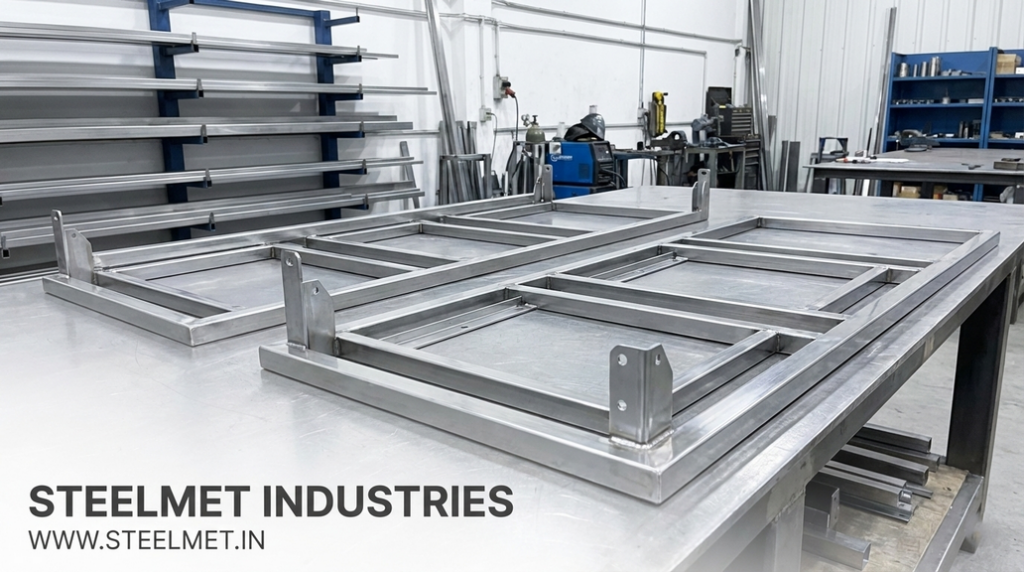General Fabrication & Structural Applications – Steel Bright Bars
This application falls under the General Engineering & Fabrication segment, where bright steel bars are
used for fabricated structures, machined fabrication parts and precision-fit assemblies.
Bright bars are preferred over hot rolled material when straightness, clean edges, dimensional accuracy
and repeatability are important.
← Back to General Engineering & Fabrication |
← All Bright Bar Applications
Why Bright Steel Bars Are Used in Fabrication
- Straight material reducing alignment issues during fabrication
- Clean surface finish improving weld quality and aesthetics
- Tight dimensional tolerances for precision-fit assemblies
- Reduced material wastage and rework
- Ease of cutting, drilling, bending and welding
Typical Fabrication & Structural Components Manufactured
- Frames, brackets and support structures
- Hinges, connectors and couplings
- Machined fabrication parts
- Light structural assemblies
- Jigs, fixtures and alignment guides
Common Steel Grades Used
| Application | Typical Grades |
|---|---|
| General Fabrication | EN8, EN9, C45 |
| Machined Fabrication Parts | EN19, 20MnCr5 |
| High Load Fabrication | 42CrMo4 |
Bright Bar Sections Commonly Used
- Rounds
- Squares
- Flats
- Hexagons
- Custom sections for fabrication drawings
Fabrication Considerations
- Improved dimensional control during assembly
- Better weld penetration and finish
- Reduced straightening and correction work
- Uniform mechanical properties across batches
Related Applications
Why Steelmet Industries?
- Consistent straightness for fabrication-friendly material
- Wide range of sections and custom profiles
- VD route steels for structurally critical applications
- Reliable repeat supply for fabrication units
- Quality verification through NABL-certified testing
FAQs
Are bright bars suitable for welding?
Yes. Bright bars weld well when correct grades and procedures are used.
Why choose bright bars over hot rolled bars for fabrication?
Bright bars reduce straightening, rework and finishing effort, improving overall fabrication quality.
Can custom sections be supplied for fabrication?
Yes. Custom bright bar sections can be manufactured based on drawings.
Contact for Enquiries
For fabrication drawings, quotations or sourcing of bright steel bars:

